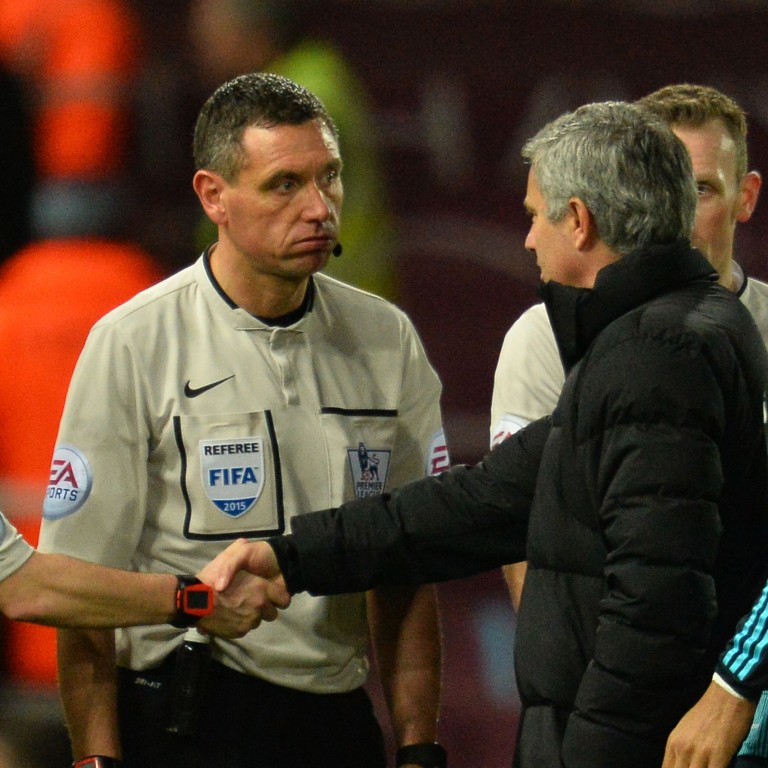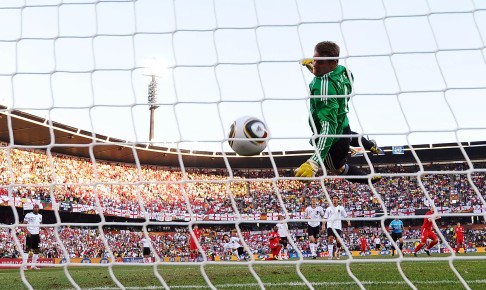
IFAB dinosaurs reject trial run for video technology to assist soccer referees
Eight-member panel acting as guardians of the game's official laws rejects a proposal to authorise the trial run of video-based assistance for referees
Technology in soccer has always been an abhorrent matter, with many "dinosaurs" in the game regarding it as pure evil.
Last week, the game's panel of prehistoric "Powers That Be" reinforced its stubborn and narrow-minded reputation by voting against authorising a live trial of video-based assistance for referees.
The International Football Association Board failed to reach agreement on sanctioning an experiment that would allow refereeing decisions to either be confirmed or overturned using broadcast footage.
It is likely to take several more years for video assistants to be fully introduced in soccer
The guardians of the game lack courage, foresight and planning, especially when a trial has already been in operation for the past season in the Netherlands. The Dutch FA has diligently conducted closed tests using video assistant referees.
This is where the match referee is helped by another official who is sitting in a van parked near the stadium, watching live TV coverage and instant replays. The preliminary findings are encouraging and the Dutch FA wanted to extend this to a proper trial in 25 cup matches.
However, instead of embracing this concept of video assistants and investing in further research, the eight-member IFAB panel - comprising four Fifa representatives and the FA heads from England, Scotland, Wales and Northern Ireland - stuck their heads in the sand and will not discuss this issue again until at least this time next year.

FA chief Greg Dyke, one of the eight members of the IFAB, said he "would be open to a trial in [England] to help speed things along". Dyke was obviously in the minority, where six votes were needed to endorse changes.
The Dutch discovered they could review a decision within 15 seconds, which is likely to be acceptable in the modern game. Considering players routinely surround and hound the referee, causing a delay easily exceeding 30 seconds, then a video review could occur in next to no time.
It is only a matter of time when video technology will be introduced. Look at the history of goal-line technology and it's timeline to acceptance. Initially, it was raised in 2000 after controversy at the African Cup of Nations final when Nigeria thought they had scored against Cameroon when the ball deflected down from the crossbar, only for the referee to decide otherwise. However, TV replays showed the ball crossed the goal-line, which was devastating for Nigeria because Cameroon won the shoot-out.
In 2006, the Premier League successfully trialled Hawk-Eye after the IFAB gave permission to test GLT in a non-competitive environment. But in 2008, IFAB decided to rule out the use of any technology in the game, thus holding back its introduction.
It took more controversial incidents - namely Frank Lampard's goal-that-wasn't in Germany's 4-1 win over England at the 2010 World Cup and Ukraine's non-goal in England's narrow 1-0 victory at Euro 2012 - for the dinosaurs to submit to reason. Therefore, it is likely to take several more years for video assistants to be fully introduced in soccer.
Interestingly, video refereeing has allegedly already been used in official Fifa tournaments. During the 2006 World Cup final between Italy and France, play was temporarily halted while referee Horacio Elizondo received advice to send off Zinedine Zidane for violent conduct.
To this day, many believe a referee's assistant saw Zidane headbutt Marco Materazzi from a pitchside monitor, although Fifa denies this. Let's say Elizondo did receive help from video refereeing. Why is this a bad thing?
Finally, here's what IFAB dinosaurs rejected at their annual general meeting in Belfast last week: No to video technology, no to an additional substitute in extra time, and no to abolishing the triple-punishment for denial of an obvious goal-scoring chance.
At around the same time, Fifa announced its plans for a winter World Cup in Qatar in 2022. This makes one wonder what is the real price to get the Powers That Be to endorse change in the modern game.


